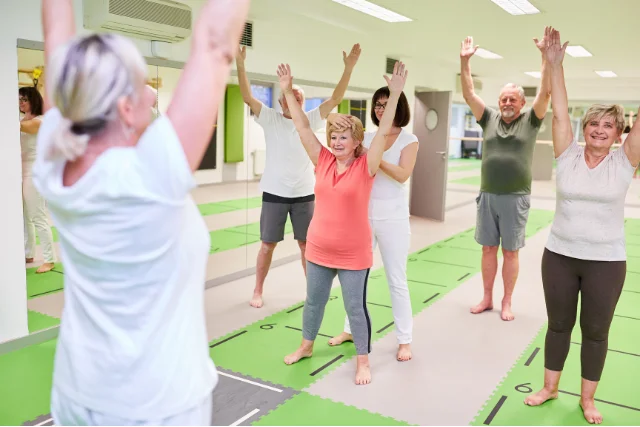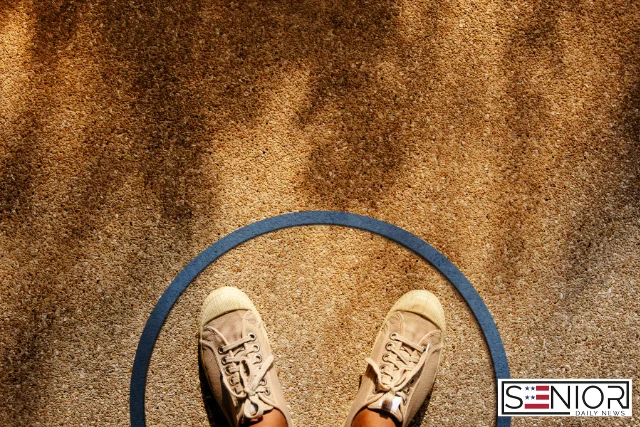The Benefits of Being a Morning Person (or Night Owl): Embrace Your Natural Rhythm

Are you someone who springs out of bed at the crack of dawn, eager to start the day? Or do you feel most alive after sunset, when the world quiets down and creativity flows? Whether you’re a morning person or a night owl, there’s no “one-size-fits-all” when it comes to daily rhythms. Both early birds and late risers can enjoy unique advantages—especially for senior citizens looking to make the most of their time.
In this article, we’ll explore the benefits of both chronotypes (that’s the science-y term for your natural sleep-wake preferences), how to identify which one you are, and how to optimize your schedule to fit your body’s internal clock. So, whether you’re sipping coffee at 6 a.m. or winding down at midnight, there’s something here for you.
What Is a Chronotype?
Chronotype refers to your body’s natural tendency to fall asleep and wake up at certain times. It’s influenced by genetics, age, and even environment. Some people are naturally wired to wake early and sleep early (morning people), while others have energy that peaks later in the day (night owls).
As we age, our chronotype can shift. Many older adults find themselves waking earlier than they did in their younger years. But that doesn’t mean being a night owl is out of the question—some seniors continue to thrive with a late-night routine.
The Benefits of Being a Morning Person
Let’s start with the early risers. If you’re someone who enjoys the quiet peace of a sunrise, you’re not alone. Studies show that morning people often report higher levels of productivity, better mental health, and a stronger sense of routine.
1. Increased Productivity
Many people find that their concentration is strongest in the morning. That’s when the brain is fresh and distractions are minimal. For seniors managing tasks like errands, doctor’s appointments, or volunteering, mornings may be the ideal time to get things done.
2. Better Sleep Quality
Morning types often have more consistent sleep routines, which can lead to higher sleep quality. Going to bed and waking up at the same time each day supports healthy circadian rhythms, reducing sleep disorders.
3. Improved Mental Health
Early risers tend to report lower levels of stress and depression. Exposure to natural sunlight in the morning can boost mood, increase vitamin D production, and help regulate sleep hormones.
4. Easier Integration with Social Schedules
Many events and appointments are scheduled during the day, from senior center activities to family gatherings. Morning people may find it easier to align their energy with these activities.
The Benefits of Being a Night Owl
Not everyone is built to rise with the sun—and that’s perfectly okay. If you feel more alive in the evening, you might be a night owl. And that comes with its own set of perks.
1. Creative and Cognitive Advantages
Studies have shown that night owls often excel in creative thinking, problem-solving, and artistic expression. The quiet of the evening can foster deep thought and inspiration.
2. Flexibility and Independence
Night owls tend to be more adaptable when routines shift. If you enjoy solo hobbies like painting, reading, or researching, nighttime may offer the perfect uninterrupted environment.
3. Less Crowded Public Spaces
Prefer avoiding the hustle and bustle? Evening hours mean fewer people at stores, gyms, or even neighborhood walks. This can be particularly appealing to seniors who prefer a more relaxed pace.
4. Better Energy in the Evening
Some seniors find that their bodies simply feel better later in the day. If aches and stiffness are worse in the morning, late-day activity might be more comfortable.
Finding Your Natural Rhythm
Still not sure which camp you fall into? Here are some questions to ask yourself:
- When do you feel most alert and energized?
- Do you naturally wake early or sleep late (without an alarm)?
- When do you prefer to be social or active?
- Do you feel groggy in the morning or evening?
You might also be what’s called an “intermediate type” or “hummingbird”—someone who doesn’t strongly lean toward either morning or night. And that’s okay too!
How to Work With Your Chronotype
Once you understand your natural rhythm, you can adjust your routine to make the most of your energy levels.
Tips for Morning People:
- Schedule errands, appointments, or physical activities earlier in the day.
- Take advantage of natural sunlight with a morning walk.
- Wind down with gentle evening activities to promote restful sleep.
Tips for Night Owls:
- Save mentally or creatively demanding tasks for later in the day.
- Avoid heavy meals or caffeine late at night to protect sleep quality.
- Use blackout curtains or white noise to sleep in comfortably.
Health Considerations for Seniors
For older adults, syncing with your natural rhythm can improve not only mood and productivity but also physical health.
- Cognitive Health: Good sleep and proper scheduling support brain function and memory.
- Chronic Conditions: Managing diabetes, arthritis, or high blood pressure is easier with consistent routines.
- Mental Health: Less stress and more enjoyable activities throughout the day can reduce feelings of isolation and anxiety.
Whatever your chronotype, the key is consistency. Going to bed and waking up at roughly the same times—even on weekends—helps reinforce your body’s natural rhythms.
Embrace Your Rhythm Without Guilt
Society often praises early risers and labels night owls as lazy—but this simply isn’t fair or true. Everyone has a rhythm that suits them best, and respecting that rhythm is part of maintaining good health.
Especially for seniors who have more flexibility in their schedules, there’s no reason to fight your natural clock. If you’re a morning person, lean into it! If you’re a night owl, embrace it with pride.
Fun Activities for Each Chronotype
Morning Person Ideas:
- Join a sunrise walking group
- Attend a morning yoga class
- Plan a breakfast outing with friends
- Start the day with journaling or crossword puzzles
Night Owl Ideas:
- Enjoy a sunset photography walk
- Try a virtual art or music class
- Curl up with a book and calming music
- Do some light stretching before bed
FAQs
Q: Can I change my chronotype if I want to? A: While it’s hard to completely change your natural sleep-wake rhythm, you can shift it slightly with gradual changes in bedtime, exposure to light, and consistent routines. However, working with your body is usually more effective than fighting it.
Q: Is one chronotype healthier than the other? A: Not necessarily. Both early birds and night owls can enjoy good health with proper sleep and lifestyle habits. What matters most is consistency and quality of rest.
Q: I’m a night owl but have early appointments. What can I do? A: Try gradually adjusting your bedtime and wake time in 15-minute increments. Also, aim for a wind-down routine at night and expose yourself to bright light in the morning.
Q: What if I don’t feel like I fit into either category? A: You might be an intermediate chronotype—someone with flexible energy levels. That’s perfectly normal. Focus on recognizing your energy peaks and planning your day around them.
Q: Can aging affect my chronotype? A: Yes. Many people become more morning-oriented as they age. However, this varies by individual, and some seniors maintain a night owl pattern well into their later years.
Image Designed Using Canva






